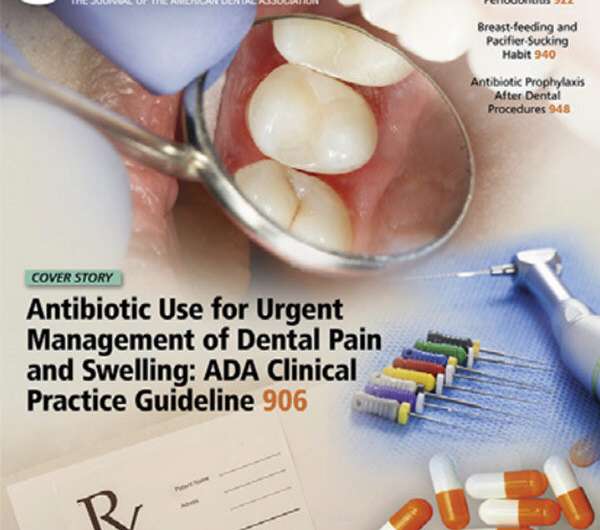Study: Urgent care, ER physicians overprescribing antibiotics for dental issues

Dentists, emergency room doctors and primary care physicians need to ease up on prescribing antibiotics for dental issues in patients who are otherwise healthy and have no manifestation of systemic disease.
That's according to an American Dental Association clinical practice guideline co-authored by a researcher at the Case Western Reserve University School of Dental Medicine.
The study, published as the cover story in the Journal of the American Dental Association, concluded that antibiotics should only be used for systemic issues, such as fever and swelling, when an infection is clearly present and worsening. It also advises patients receive dental treatment instead and manage pain with over-the-counter pain medications.
"Antibiotics shouldn't be the first line of defense for dental pain and swelling," said Anita Aminoshariae, director of the dental school's endodontics program.
Aminoshariae was part of a panel consisting of dentists, endodontists, physicians and pharmacists that set out to formulate recommendations to assist clinicians and patients in determining the appropriate use of systemic antibiotics for the urgent management of tooth pain and swelling. The results of the study suggested that "antibiotics may provide negligible benefits" at best.
"What we're trying to avoid is a patient coming to an urgent care facility with tooth pain, hot/cold sensitivity and walking out with a regimen of antibiotics," Aminoshariae said. "One of our main objectives here is to get this information to the public so that the patient may be referred to a dentist and receive the appropriate dental treatment."
Scientists have long known that the inappropriate use of antibiotics can do more harm than good, and can contribute to issues like antibiotic resistance. Unfortunately, research into appropriate antibiotic prescribing is relatively new territory.
As part of the systematic review and guideline development process, the ADA outlined five new clinical recommendations and two practice statements, all related to prescribing antibiotics to patients with dental issues when a dental office setting is and is not available.
"This is about having some best practices in place," Aminoshariae said, "and what we know is that there are too many dentists and physicians giving patients antibiotics when the patients just do not need them."
More information: Malavika P. Tampi et al. Antibiotics for the urgent management of symptomatic irreversible pulpitis, symptomatic apical periodontitis, and localized acute apical abscess, The Journal of the American Dental Association (2019). DOI: 10.1016/j.adaj.2019.09.011



















